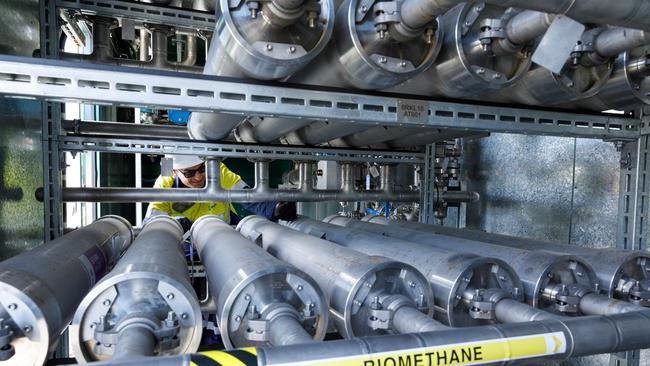Renewable gas is an efficient pathway to decarbonisation
To develop a renewable gas industry that has the scale to decarbonise Australia’s industrial base, we need a supportive policy framework that views renewable gas as more than just a commodity

A week before the federal budget unveiled plans to keep manufacturing on Australian soil, another policy announcement was already helping to support that vision. It was the federal government’s Future Gas Strategy, a clear acknowledgment of the vital role gas will play in the transition to net zero and beyond, based on facts and data, not ideology or wishful thinking. This was an important pre-budget marker, providing much-needed clarity about the government’s commitment to a broad energy mix in the coming decades. A timely reminder that gas will be needed for the long haul, to both power Australian industry and provide invaluable support to the intermittency of renewable electricity, as coal generation departs the system.
But as the Future of Gas Strategy points out – that’s not the whole story. Because the future of gas is also renewable – and it is already here. With biomethane and hydrogen projects moving from pipedream to pipelines across Australia, renewable gas is beginning to provide a low-emission alternative to natural gas that can help Australian industry to decarbonise.
And while it is small beginnings in Australia compared to the scale built quickly across parts of Europe, the UK and the US, this innovation in gas is already emerging as a game changer for local businesses and manufacturers who are reliant on gas for their processes and operations that cannot be easily or affordably electrified.
Renewable gas offers an efficient pathway to decarbonisation.
Given not only the importance, but the enormity of the challenge of reaching emission reduction targets, Australia needs all energy and fuel options on the table to decarbonise at pace, while continuing to provide affordable and reliable energy for all customers, big and small.
Getting this balance right is the challenge of our time.

At Jemena we have long understood the importance of having a mix of energy solutions, while providing reliable and affordable energy to our customers. It is why we have made significant investments in demonstrating the viability of renewable gas, helping to bridge the gap for industrial customers who need to decarbonise, but are short on options.
At Jemena’s Malabar Biomethane Injection Plant in Sydney – the first project of its kind in Australia – the reality of renewable gas is now tangible. Here, biomethane is produced from wastewater, upgraded to Australian Standards, and injected into Jemena’s gas network as GreenPower-certified low-emission renewable gas.
The plant is on track to scale up biomethane production to 200 terajoules per year. It is a small contribution, but according to research the waste feedstock potential in proximity to Jemena’s gas network is 36 petajoules per annum – more than enough to cover NSW’s residential supply of gas.
That is one plant here in Australia, overseas the story is quite different.
There are already more than 10,000 biogas facilities across Germany alone, feeding into gas networks, powering communities and providing an invaluable source of renewable fuel to industries. France built 150 similar projects last year, while Denmark has already managed to replace close to 40 per cent of its natural gas with biomethane generated from farm animal manure.
To develop a renewable gas industry that has the scale to decarbonise Australia’s industrial base, we need a supportive policy framework that views renewable gas as more than just a commodity.
To begin, gas users need to be able to count renewable gas use towards their emission reduction goals and compliance with the Safeguard Mechanism.
This requires the recognition of certified renewable gas under the National Greenhouse and Energy Reporting (NGER) legislation, allowing Australian businesses to claim Scope 1 emissions reduction from their renewable gas usage using existing gas infrastructure.
This is a relatively simple policy change, using mechanisms that are already in place. But it could open the floodgates for investment to support a domestic renewable gas sector, all the while supporting the lowest cost energy transition for our manufacturers and heavy industry.
A 2024 ACIL Allen report found the most economically efficient pathway to net zero emissions for today’s gas users involves a mix of renewable gas and renewable electricity saving our economy more than $30bn over the energy transition. Helping to achieve net zero in a cost-effective way, while ensuring our manufacturers can lower their emissions without the upheaval of operations or closing their doors.
A worthy vision to be embraced.
David Gillespie is managing director of Jemena.

